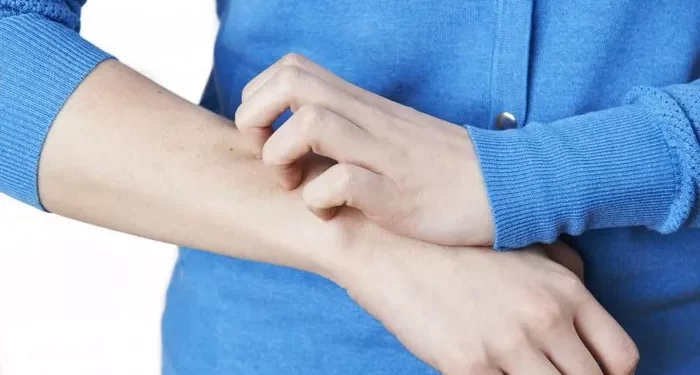Hidradenitis suppurativa (HS) is a chronic skin condition that causes painful lumps and abscesses in areas like the armpits, groin, and under the breasts. It can significantly affect a person’s quality of life. Many people wonder if HS can go away or if it is a lifelong condition. In this article, we will explore the nature of HS, its treatment options, and whether it can fully resolve.
Understanding Hidradenitis Suppurativa
Hidradenitis suppurativa is often confused with other skin conditions, but it is distinct. Here’s what you need to know:
What Causes Hidradenitis Suppurativa?
The exact cause of HS is still unknown, but several factors are believed to contribute:
Genetics: Family history can play a role. If someone in your family has HS, your risk may be higher.
Immune System: HS is thought to involve an abnormal immune response that leads to inflammation.
Hormones: Hormonal changes may trigger or worsen symptoms, as HS often starts after puberty.
Obesity: Excess weight can increase friction and sweating in areas where HS occurs, worsening the condition.
Smoking: Studies have shown that smoking may worsen HS symptoms.
Symptoms of Hidradenitis Suppurativa
Common symptoms include:
- Painful lumps under the skin
- Swelling and redness
- Drainage of pus or blood from abscesses
- Scarring or tunnel-like formations under the skin
These symptoms can flare up and then go into remission, leading to periods of discomfort followed by relative peace.
Can Hidradenitis Suppurativa Go Away?
The question on many people’s minds is whether HS can fully go away. Here are the key points to consider:
Remission vs. Cure
Hidradenitis suppurativa is generally considered a chronic condition, meaning that while it can go into remission, it may not completely go away for everyone.
Remission: Some individuals experience long periods without symptoms. This can happen naturally or with treatment.
Cure: A complete and permanent cure is rare. However, some treatments can significantly reduce symptoms and improve quality of life.
Factors Influencing Recovery
Several factors can influence the course of HS:
Severity of the Condition: Milder cases may respond better to treatment and achieve longer periods of remission.
Lifestyle Changes: Weight management, quitting smoking, and maintaining good hygiene can help reduce flare-ups.
Treatment Adherence: Following prescribed treatments consistently can lead to better outcomes.
Treatment Options for Hidradenitis Suppurativa
While HS may not be completely curable for everyone, various treatments can help manage symptoms and potentially lead to remission. Here are some common options:
1. Medications
Antibiotics
- Purpose: These can help reduce inflammation and control bacterial infections in the affected areas.
- Types: Both topical and oral antibiotics may be used, depending on the severity.
Hormonal Therapy
- Purpose: Hormonal treatments can help regulate the hormonal imbalances that may trigger HS symptoms.
- Options: Birth control pills and other hormonal medications are commonly prescribed.
Immunosuppressants
- Purpose: These drugs reduce the immune response, which may help in severe cases.
- Examples: Medications like adalimumab (Humira) are specifically approved for HS.
Corticosteroids
- Purpose: Corticosteroids can reduce inflammation quickly and may be injected directly into lumps.
- Caution: Long-term use can lead to side effects, so they are typically used for short periods.
2. Surgery
In some cases, surgery may be necessary:
Incision and Drainage: This is done for abscesses to relieve pain and promote healing.
Wide Excision: For severe cases, the affected skin may be surgically removed. This can lead to significant improvement.
3. Lifestyle Modifications
Making certain lifestyle changes can significantly impact HS management:
Weight Management
- Importance: Losing weight can reduce friction and irritation in affected areas.
- Strategies: A balanced diet and regular exercise can help achieve and maintain a healthy weight.
Smoking Cessation
- Benefits: Quitting smoking can improve overall skin health and reduce flare-ups.
Hygiene Practices
- Recommendations: Keeping affected areas clean and dry can help minimize irritation. Wearing loose-fitting clothing can also reduce friction.
Living with Hidradenitis Suppurativa
Coping with HS can be challenging, but many individuals find ways to manage their symptoms effectively.
Emotional Support
Living with a chronic condition can take a toll on mental health. Here are some tips:
Support Groups: Connecting with others who have HS can provide emotional support and practical advice.
Counseling: Speaking with a mental health professional can help cope with the stress and anxiety of living with HS.
Regular Follow-ups
Regular appointments with a healthcare provider are crucial for managing HS effectively. These visits can help monitor the condition and adjust treatment as needed.
Conclusion
In summary, while hidradenitis suppurativa is often a chronic condition, many individuals can experience long periods of remission through various treatment options. By understanding the condition and actively managing it through lifestyle changes and medical treatments, many find relief from symptoms.
For those living with HS, it is essential to stay informed, seek support, and maintain open communication with healthcare providers. While HS may not go away completely for everyone, significant improvements in quality of life are possible.
If you or someone you know is struggling with hidradenitis suppurativa, remember that help is available. Consulting a dermatologist who specializes in HS can provide tailored treatment plans and support. With the right approach, many people find ways to live well despite this challenging condition.
Related topics:

























